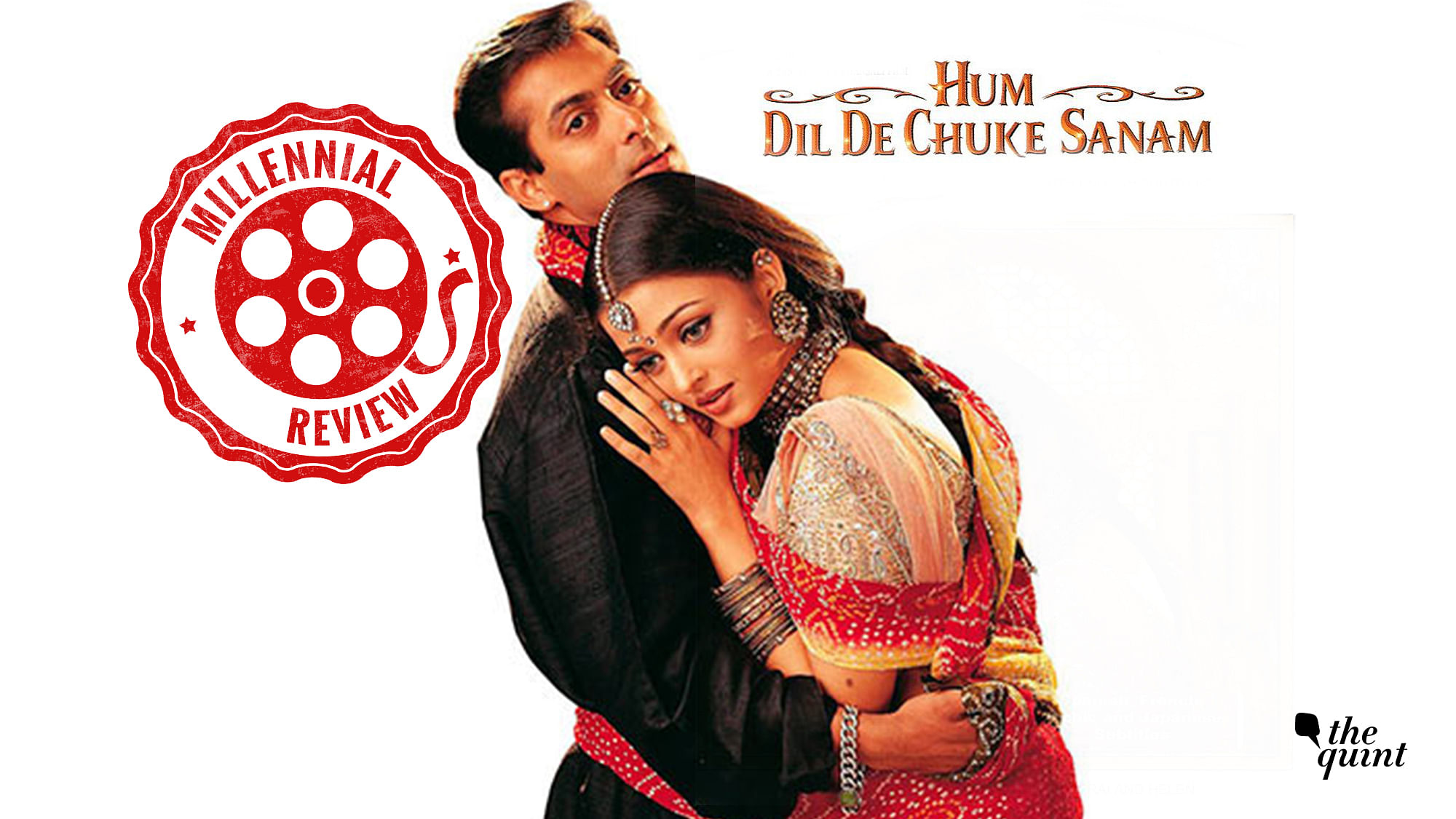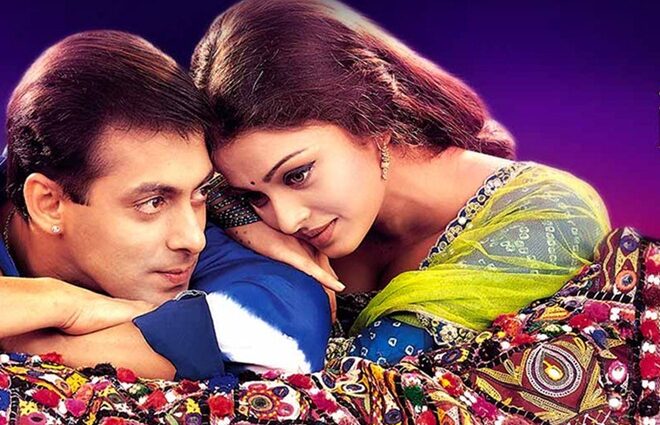

The "good" love is actually found with her "ideally traditional" (in the eyes of Nandini's father) husband, Vanraj, who loves her selflessly and respectfully. However, this film takes that formula one step further by presenting Nandini with choosing between "good" and "bad" types of love. Rosie Thomas writes that "the good-evil opposition becomes subtly conflated with another set of ideas: good with associations of the traditional, that which is Indian bad with those of the traditional and the 'non-Indian.'" In this film, like in DDLJ, it is not the Westernized lover himself who disrupts the moral universe, but rather the overbearing father who rejects his daughter's wishes. But Hum Dil De Chuke Sanam flips this formula on its script - rather than reuniting with her lover, Nandini falls in love with her husband along the way, and chooses to stay with him instead. Thematically, it is similar to DDLJ - the daughter of a traditionalist father falls in love with a Westernized lover even though she is already arranged to be married to someone her father approves of. This film is unlike any other Bollywood movie I've ever seen. In a shocking twist ending, Nandini falls in love with her husband Vanraj, rejecting Sameer and choosing to spend her life with Vanraj.
#Hum dil de chuke sanam movie songs how to
What follows is an epic love story spanning two countries, in which Nandini must decide between Sameer, who taught her how to love passionately, and Vanraj, who taught her to abide by promises of love. Following their marriage, the honorable Vanraj takes Nandini to India to reunite with her lover, sacrificing his own happiness for hers.

But Nandini's father, Pundit, has already arranged Nandini's marriage to the quiet and reserved lawyer Vanraj. Sameer is a half-Indian, half-Italian mischievous playboy, who falls in love with Nandini. Hum Dil De Chuke Sanam stars Aishwarya Rai as Nandini, the entitled, vivacious daughter of a royal musician who falls in love with one of her father's students, Sameer, played by Salman Khan.


 0 kommentar(er)
0 kommentar(er)
